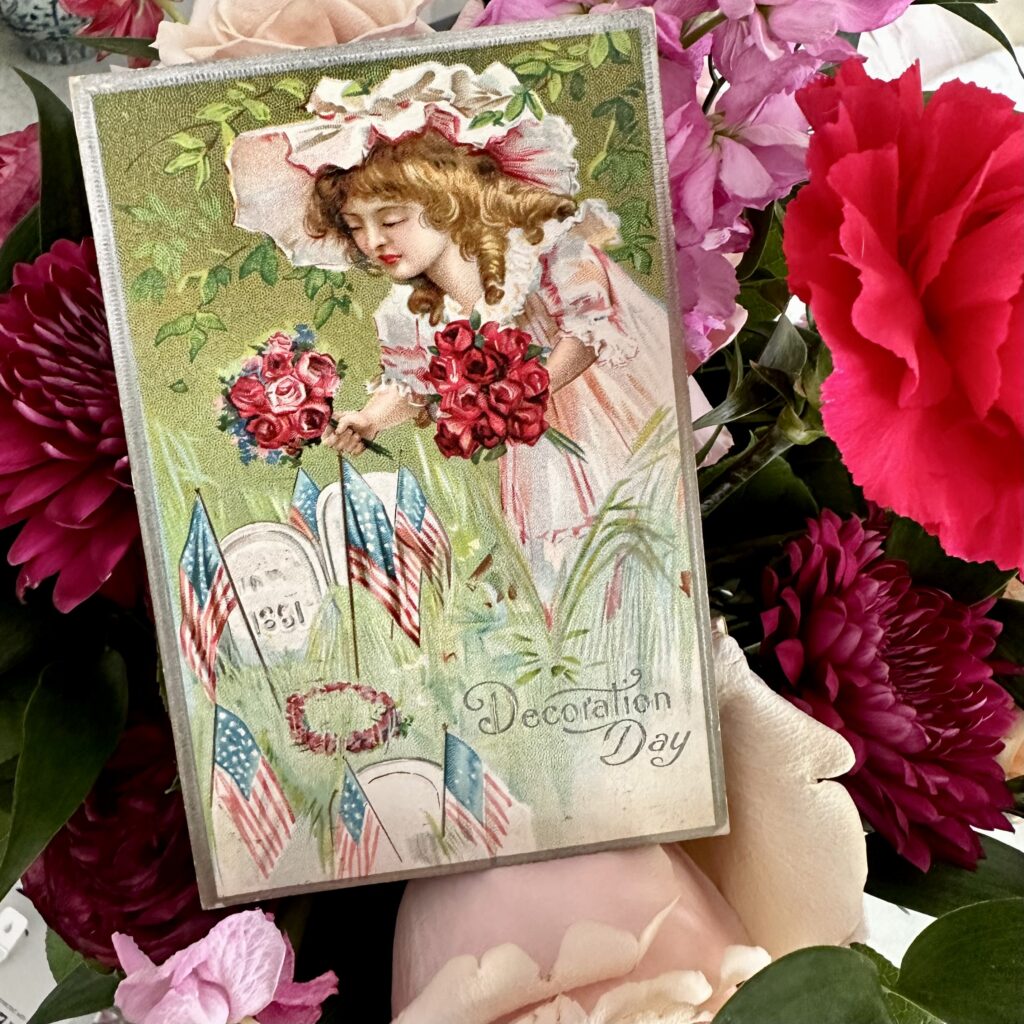
The First National “Decoration Day”
In the last years of the Civil War and immediately afterward, communities in the Southern states decorated soldiers’ graves with flowers during the springtime “decoration days.” After visiting a Confederate cemetery in 1866, General John A. Logan, the Commander-in-Chief of the Grand Army of the Republic, proclaimed in an Independence Day speech that same year, that if “traitors in the South gather day after day to strew garlands of flowers upon the graves of the Rebel soldiers” then a Black man “who has gained his liberty by the march of American arms” shall “have the right” to “come along with a basket of flowers to strew upon the grave of some poor loyal soldier.” In her autobiography documenting her and John Logan’s life, Logan’s wife, Mary, noted that her husband’s “adoption of the Southern custom was transparent to nearly everyone living in America in 1868.”
On May 5, 1868, General Logan issued a “Memorial Day Order”in recognition of a national “Decoration Day”. In his order, Logan declared May 30 as a day dedicated to “cherishing tenderly the memory of our heroic dead” and “gather[ing] around their sacred remains and garland the passionless mounds above them with choicest flowers of springtime.” The ceremony would be held at Arlington, the former home of Confederate General Robert E. Lee that had been designated a national cemetery, serving as a “potter’s field” of sorts for those veterans’ families who could not afford private burial. Approximately 11,250 White and Black Union soldiers were buried at the site, along with about 350 Confederate soldiers; more than half were buried as unknowns.
On the day of the memorial, the portico on the Arlington mansion was decorated with flags and draped for mourning. A grandstand had been built beside the portico to allow for the seating of former Union officers and dignitaries. General Ulysses Grant and his wife Julia, along with Edwin “Mars” Stanton and his wife Ellen were among those in attendance. Noticeably absent was embattled President Johnson, who had only the month before narrowly escaped conviction in his impeachment trial.
The ceremony began promptly at one o’clock with General Logan presiding. Veterans, families, widows, orphans, and employees of the Federal government were in the crowd of more than five thousand. After a prayer by Reverend Sonderland and a hymn, General James Garfield, at the time a Congressman from Ohio, stepped up to the podium to address the crowd.
“I am oppressed with a sense of the impropriety of uttering words on this occasion,” he began. “If silence is ever golden, it must be here, beside the graves of fifteen thousand men, whose lives were more significant than speech, and whose death was a poem, the music of which can never be sung.”
Garfield delivered a somber and heartfelt speech and when hesurrendered the podium, the crowd stood with applause. The Gettysburg Address was recited along with a reading of Logan’s General Order urging the nation to never forget those who lost their lives during the last War. A band played the “Star-Spangled Banner” as the crowd sang along. An original poem was read before the services concluded with a solemn dirge by the 44th Infantry band. When the music ended, children of the Soldiers’ and Sailors’ Orphan Asylum were “deployed… throughout the cemetery, strewing flowers and raising miniature flags over the graves.”
Through research on my next book (I call it the Wharton Project until it’s titled), I’ve learned a lot about that first national Memorial Day celebration. The emotional mix of patriotism, celebration and mourning on that day had a profound effect on those both in the grandstand and sitting on the ground around the portico. There is a portion of Garfield’s’ speech that really struck me and set the tenor for Memorial Day observances to come. For clarity I’ve paraphrased the passage.
“With our words, we all make promises, pledge our faith, and praise virtue. Promises, however, are often not kept, our pledgesof faith broken, and we find that our vices ultimately compromise our boasts of virtue. We know nothing of the promises these men buried here made, the one pledge they may have given, or any of the words they spoke before left their homes and loved ones to answer the call to defend our nation. But we do know that by one supreme act, these men perfected the highest virtues of all men. For the love of their country, they accepted death, resolving all doubts, and made immortal their patriotism and their virtue.”
Let us never forget their sacrifice.


